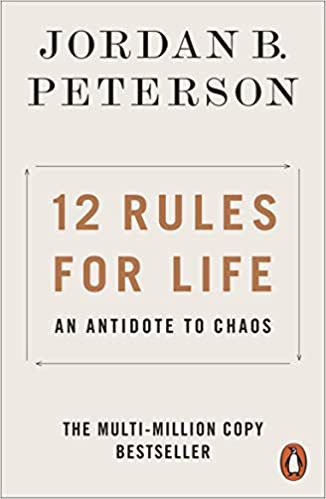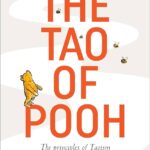Welcome to Thinkers Books, where we delve into the world of insightful literature. Today, we explore the profound wisdom encapsulated in ’12 Rules for Life: An Antidote to Chaos’ by renowned psychologist Jordan Peterson. This book is a unique blend of philosophy, psychology, and practical advice on navigating the complexities of life.
Jordan Peterson, an esteemed clinical psychologist and academic, draws from his extensive professional experience to offer these 12 fundamental rules. These rules serve as a compass guiding us through life’s chaos, leading us towards a more meaningful existence. Each practice is akin to a lighthouse, illuminating our path with insights from psychology, history, and Peterson’s personal experiences.
Before we delve deeper, let’s familiarise ourselves with all 12 rules:
- Stand up straight with your shoulders back.
- Treat yourself like someone you are responsible for helping.
- Make friends with people who want the best for you.
- Compare yourself to who you were yesterday, not to who someone else is today.
- Do not let your children do anything that makes you dislike them.
- Set your house in perfect order before you criticise the world.
- Pursue what is meaningful (not what is expedient).
- Tell the truth—or, at least, don’t lie.
- Assume that the person you are listening to might know something you don’t.
- Be precise in your speech.
- Do not bother children when they are skateboarding.
- Pet a cat when you encounter one on the street.
Now, let’s delve into my top five learning points from this book:
- Rule 4 – ‘Compare yourself to who you were yesterday, not to who someone else is today’: Peterson emphasises that our progress should be measured against our past selves, not others. It’s about recognising our growth, celebrating our achievements, and striving for self-improvement.
- Rule 6 – ‘Set your house in perfect order before you criticise the world’: Peterson urges us to introspect before pointing fingers at external factors. It’s about taking responsibility for our actions, rectifying our mistakes, and cultivating personal excellence.
- Rule 8 – ‘Tell the truth—or, at least, don’t lie’: As Peterson underscores, honesty is the bedrock of a fulfilling life. It fosters trust, integrity, and authenticity and facilitates genuine interactions with others.
- Rule 9 – ‘Assume that the person you are listening to might know something you don’t’: This rule promotes humility and open-mindedness. It encourages us to approach every interaction as a learning opportunity.
- Rule 12 – ‘Pet a cat when you encounter one on the street’: This rule symbolises the importance of finding joy in life’s simple pleasures. It encourages us to stay present, appreciate life’s small joys, and find happiness in everyday moments.
Each rule offers a unique perspective on living a fulfilled and meaningful life. They encourage us to seek purpose, be honest, listen actively, and find joy in simple pleasures.
On a personal note, ’12 Rules for Life’ was a transformative read. The rule about comparing oneself to who they were yesterday resonated deeply with me, reminding me that my actual competition is not with others but with my past self.
As we conclude our exploration of ’12 Rules for Life, I invite you to continue reading more summaries from Thinkers Books. Each book is a new adventure waiting to unfold, a unique opportunity to transform your life. Remember, knowledge is power, and books are the fuel. So, keep reading, thinking, and reading happily until our next intellectual journey!







